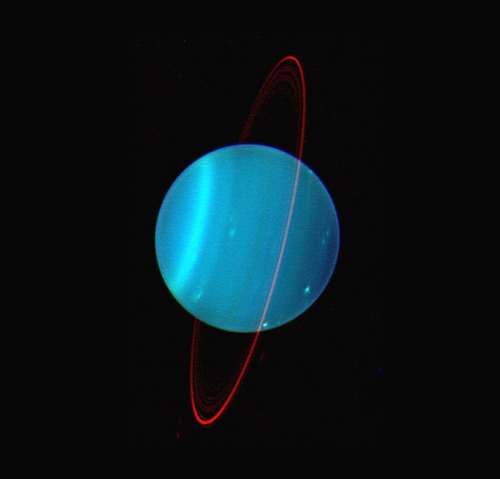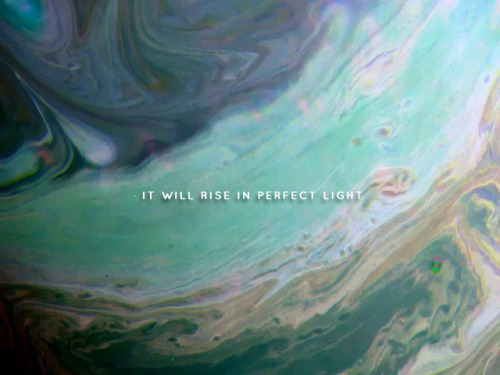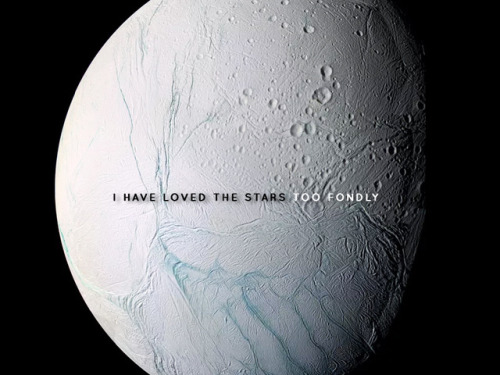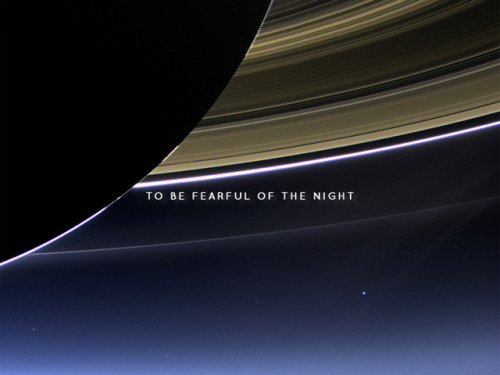Delightfulskywalker - 🥀

More Posts from Delightfulskywalker and Others
Yet our Sun is only one of the fixed stars, of which the most up-to-date astronomical methods estimate there are one hundred and twenty-five millions. Around each of these fixed stars undoubtedly revolves a Planetary System like our own. Thus reckoned, there are one thousand million Worlds. Even this is not the limit. If we should stand upon the farthest and dimmest star, we should, no doubt, from there see as many more beyond. We are appalled at the greatness of the Universe.
A Trip To The Planets (1925)







You underestimate the power of the Dark Side. If you will not fight, then you will meet your destiny.









red carpet (2018)
Ten interesting facts about Uranus
Like the classical planets, Uranus is visible to the naked eye, but it was never recognised as a planet by ancient observers because of its dimness and slow orbit. Sir William Herschel announced its discovery on 13 March 1781, expanding the known boundaries of the Solar System for the first time in history and making Uranus the first planet discovered with a telescope.

1° Uranus is the seventh planet from the Sun. It has the third-largest planetary radius and fourth-largest planetary mass in the Solar System. Uranus is similar in composition to Neptune, and both have different bulk chemical composition from that of the larger gas giants Jupiter and Saturn.

2° Like all of the giant planets, Uranus has its share of moons. At present, astronomers have confirmed the existence of 27 natural satellites. But for the most part, these moons are small and irregular.

3° Uranus’ moons are named after characters created by William Shakespeare and Alexander Pope. These include Oberon, Titania and Miranda. All are frozen worlds with dark surfaces. Some are ice and rock mixtures. The most interesting Uranian moon is Miranda; it has ice canyons, terraces, and other strange-looking surface areas.

4° Only one spacecraft in the history of spaceflight has ever made a close approach to Uranus. NASA’s Voyager 2 conducted its closest approach to Uranus on January 24th, 1986, passing within 81,000 km of the cloud tops of Uranus. It took thousands of photographs of the gas/ice giant and its moons before speeding off towards its next target: Neptune.

5° Uranus has rings: All the gas and ice giants have their own ring systems, and Uranus’ is the second most dramatic set of rings in the Solar System.

6° Uranus makes one trip around the Sun every 84 Earth years. During some parts of its orbit one or the other of its poles point directly at the Sun and get about 42 years of direct sunlight. The rest of the time they are in darkness.

7° All of the planets in the Solar System rotate on their axis, with a tilt that’s similar to the Sun. In many cases, planet’s have an axial tilt, where one of their poles will be inclined slightly towards the Sun. But the axial tilt of Uranus is a staggering 98 degrees! In other words, the planet is rotating on its side.

8° Uranus is approximately 4 times the sizes of Earth and 63 times its volume.

9° Uranus is blue-green in color, the result of methane in its mostly hydrogen-helium atmosphere. The planet is often dubbed an ice giant, since 80 percent or more of its mass is made up of a fluid mix of water, methane, and ammonia ices.

10° Uranus hits the coldest temperatures of any planet. With minimum atmospheric temperature of -224°C Uranus is nearly coldest planet in the solar system. While Neptune doesn’t get as cold as Uranus it is on average colder. The upper atmosphere of Uranus is covered by a methane haze which hides the storms that take place in the cloud decks.
source 1, source 2, source 2
Images credit: NASA


For my part I know nothing with any certainty, but the sight of the stars makes me dream.- Vincent Van Gogh

it’s killing me









Happy Birthday to our biggest and most adorable fluff ball leader, Kwon Jiyong! ❤️

this needs to be on everyone’s blog.




On September 15h, 2017 the Cassini spacecraft will end its 20-year mission by diving into the atmosphere of Saturn.
Goodnight, Cassini.
-
 notsalehaenough reblogged this · 2 years ago
notsalehaenough reblogged this · 2 years ago -
 allforlove8888-blog liked this · 5 years ago
allforlove8888-blog liked this · 5 years ago -
 luquenia1993 liked this · 5 years ago
luquenia1993 liked this · 5 years ago -
 sal-sedine liked this · 6 years ago
sal-sedine liked this · 6 years ago -
 vipdraskou reblogged this · 6 years ago
vipdraskou reblogged this · 6 years ago -
 vipdraskou liked this · 6 years ago
vipdraskou liked this · 6 years ago -
 hellyeahgdragon reblogged this · 6 years ago
hellyeahgdragon reblogged this · 6 years ago -
 di-virus liked this · 6 years ago
di-virus liked this · 6 years ago -
 claudiagmp07 liked this · 6 years ago
claudiagmp07 liked this · 6 years ago -
 ethereal-dollie-blog liked this · 6 years ago
ethereal-dollie-blog liked this · 6 years ago -
 girlwithathorn liked this · 6 years ago
girlwithathorn liked this · 6 years ago -
 make-art-not-war1 reblogged this · 6 years ago
make-art-not-war1 reblogged this · 6 years ago -
 kimfairy96 reblogged this · 7 years ago
kimfairy96 reblogged this · 7 years ago -
 delightfulskywalker reblogged this · 7 years ago
delightfulskywalker reblogged this · 7 years ago -
 delightfulskywalker liked this · 7 years ago
delightfulskywalker liked this · 7 years ago -
 ji-iyong liked this · 7 years ago
ji-iyong liked this · 7 years ago -
 sjlover11 liked this · 7 years ago
sjlover11 liked this · 7 years ago -
 billionaire-prince reblogged this · 7 years ago
billionaire-prince reblogged this · 7 years ago -
 blue-serenade liked this · 7 years ago
blue-serenade liked this · 7 years ago -
 h-aku reblogged this · 7 years ago
h-aku reblogged this · 7 years ago -
 misa26-blog1 liked this · 7 years ago
misa26-blog1 liked this · 7 years ago -
 tsunzakigarasu reblogged this · 7 years ago
tsunzakigarasu reblogged this · 7 years ago -
 earlgreylattes liked this · 7 years ago
earlgreylattes liked this · 7 years ago -
 roo-appa reblogged this · 7 years ago
roo-appa reblogged this · 7 years ago -
 lizzieborednow reblogged this · 7 years ago
lizzieborednow reblogged this · 7 years ago -
 cyaarafire123 liked this · 7 years ago
cyaarafire123 liked this · 7 years ago -
 seungriseverything liked this · 7 years ago
seungriseverything liked this · 7 years ago -
 rzlhnn liked this · 7 years ago
rzlhnn liked this · 7 years ago -
 sunsetsmiles2 liked this · 7 years ago
sunsetsmiles2 liked this · 7 years ago -
 meryyn-n liked this · 7 years ago
meryyn-n liked this · 7 years ago -
 amal40603 liked this · 7 years ago
amal40603 liked this · 7 years ago -
 kimchimacchiato reblogged this · 7 years ago
kimchimacchiato reblogged this · 7 years ago -
 kimfairy96 liked this · 7 years ago
kimfairy96 liked this · 7 years ago -
 sheogorathdm reblogged this · 7 years ago
sheogorathdm reblogged this · 7 years ago -
 riverlakepondstream-blog liked this · 7 years ago
riverlakepondstream-blog liked this · 7 years ago -
 sassy-ren liked this · 7 years ago
sassy-ren liked this · 7 years ago -
 lily-grove liked this · 7 years ago
lily-grove liked this · 7 years ago -
 willyongshakespeare liked this · 7 years ago
willyongshakespeare liked this · 7 years ago -
 lira21-universe liked this · 7 years ago
lira21-universe liked this · 7 years ago -
 tabis-eyebrows reblogged this · 7 years ago
tabis-eyebrows reblogged this · 7 years ago -
 britishjoonie liked this · 7 years ago
britishjoonie liked this · 7 years ago
"Hope is like the sun. If you only believe it when you see it, you'll never make it through the night." -Princess Leia
286 posts